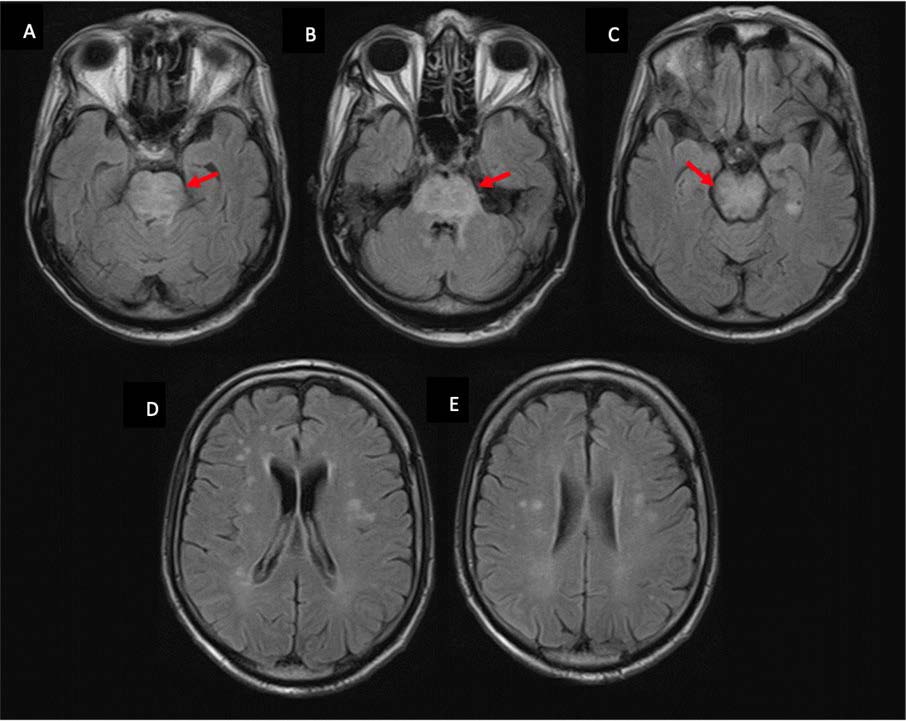Pons Infection Due To Disseminated Aspergillus
DOI:
https://doi.org/10.3941/jrcr.5274Abstract
A 61-year-old patient with a history of hypertension and diabetes mellitus was admitted with newly developed heart failure, acute kidney injury, and nephrotic syndrome. The patient is suspected of being immunocompromised by a hematologic malignancy. Subsequently, developed pulmonary sepsis and neurological deterioration. Neuroimaging revealed diffuse signal abnormalities in the pons with symmetric involvement, but no signs of restricted diffusion. Despite targeted antibiotic therapy, the patient’s condition did not improve, and systemic inflammation persisted. Aspergillus fumigatus was isolated from bronchoalveolar lavage and blood cultures, confirming hematogenous dissemination. Cerebrospinal fluid showed hypoglycorrhachia, hyperproteinorrhachia and a positive galactomannan. Follow-up brain Magnetic Resonance Imaging showed progression of edema and restricted diffusion, indicating disseminated aspergillosis involving the pons. The patient’s condition worsened, leading to multiple organ dysfunction syndrome and death.

Downloads
Published
Issue
Section
License
Copyright (c) 2024 Journal of Radiology Case Reports

This work is licensed under a Creative Commons Attribution-NonCommercial-NoDerivatives 4.0 International License.
The publisher holds the copyright to the published articles and contents. However, the articles in this journal are open-access articles distributed under the terms of the Creative Commons Attribution-NonCommercial-NoDerivs 4.0 License, which permits reproduction and distribution, provided the original work is properly cited. The publisher and author have the right to use the text, images and other multimedia contents from the submitted work for further usage in affiliated programs. Commercial use and derivative works are not permitted, unless explicitly allowed by the publisher.





